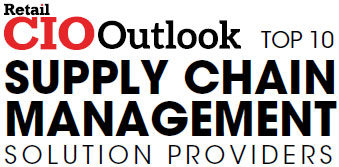The challenges being thrown at the food and beverage sector is continuous, and steps needed to be taken if the enterprises want to retain their customers and remain relevant to the constantly evolving consumer needs. Does technology have the power to fulfill customers’ needs?
Fremont, CA: The power duo health and sustainability now rule the food and Beverage industry. The awareness surrounding these trends has shot up exponentially over the last couple of years. Meanwhile, the ethical consumer market predicts that more and more consumers will consider ethical sourcing and sustainability at the core of purchase decisions.
Organizations that encourage ethical consumerism have kept a keen eye on consumer attitudes of consumption since the late 90s. Ever since the tracking began, doubt about the origin of the food consumed, whether the food is produced sustainably, has come to the fore. The ethically sourced food and beverages have seen an almost 17 percent hike in sales since 2017, claimed Ethical Consumer. This shift towards the food varieties perceived to be healthy and sustainable is likely to gather attention soon.
EY’s global consumer industries advisory board predicts that “With increasing environmental concerns among consumers, sustainability is vital for consumer-facing businesses. Consumers will continue to look for products that meet both health and sustainability requirements.”
Plant-based and Environment-safe Packaging
 The types of packaging that tick both the boxes are equipping itself for success as the interest of the consumers on sustainable, plant-based products is surging. The biggest near-term challenge for the sector will be to design and manufacture these materials on a scale that will necessarily meet market requirements.
The types of packaging that tick both the boxes are equipping itself for success as the interest of the consumers on sustainable, plant-based products is surging. The biggest near-term challenge for the sector will be to design and manufacture these materials on a scale that will necessarily meet market requirements.
Plant-based meat substitutes will also gain much attention and acceptability that extends beyond beef products to fish and pork. This will also prove to be a challenging feat for the companies as they have to scale-up the infrastructure.
The initial step is to avoid the use of plastics in packaging, to incorporate the use of 100 percent recyclable plastics and ensure that retailers put in more effort to stop the usage of single-use plastics. Multibillion-dollar companies like Nestle, Coca-cola European Partners, and PepsiCo have pledged to make the shift and use sustainable materials for packaging by 2025.
Companies Leverage Data to Build a Defense
The challenges being thrown at the food and beverage sector is continuous, and several times a hit and a miss. It has reached a stage where the immediate response from the legacy companies has become a necessity.
To keep up with the trends, big data is leveraged to play a more significant role in helping companies prosper in such transforming times. Companies and brands that spend time creating a culture where information is baked into decisions, if necessary, working with others to achieve it, are the best placed to succeed. By building capabilities in data analytics, AI, IoT, ML, and blockchain, businesses are better equipped with the information to make critical decisions that more personalized and transparent for customers.
Increased collaboration and an open approach towards innovations and supply chains to value-networks are becoming more and more relevant for food makers and retailers. All that is left is its implementation.
See Also :- Top Project Management Consulting/Services Companies
Read Also